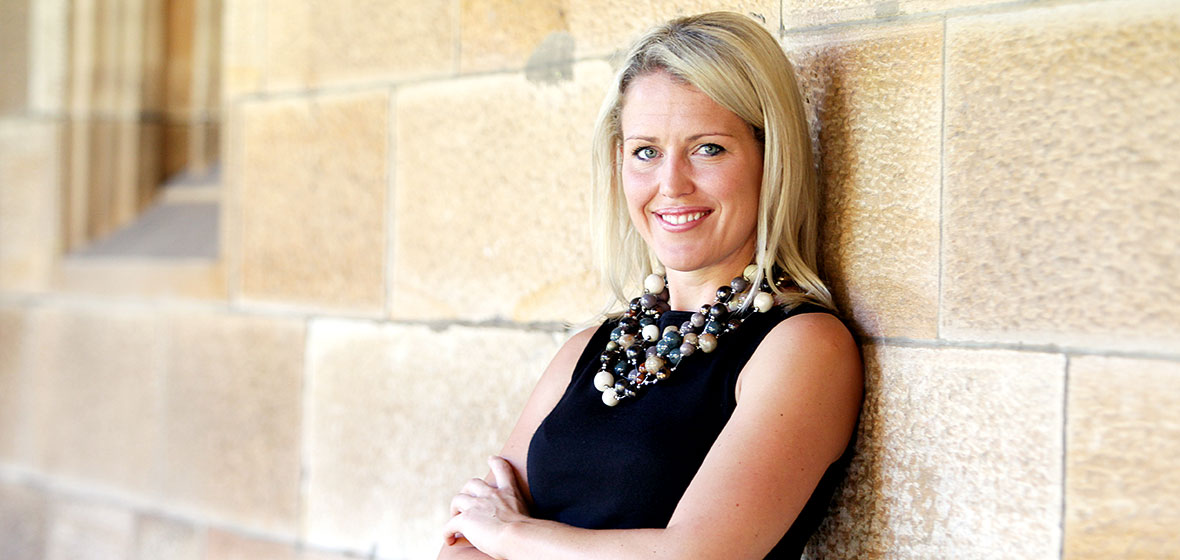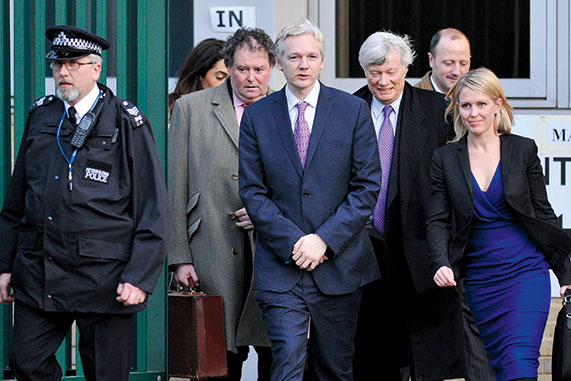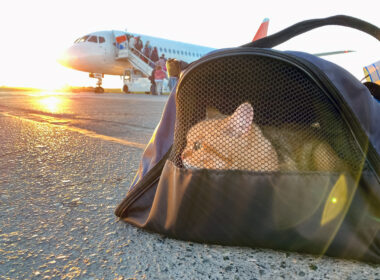Jennifer Robinson, legal adviser to Julian Assange and the United Liberation Movement for West Papua, is Director of Legal Advocacy for the Bertha Foundation where she established the Bertha Justice Initiative that supports 120 young lawyers in 16 countries to practise “movement lawyering”. She speaks about her work with filmmakers, lawyers and activists and her journey from Bomaderry High on the south coast of NSW to the centre of international legal activism.
At Yale Law School they call it “cause lawyering”. Other law journals use the term “radical lawyering”. At the Bertha Foundation it’s “movement lawyering”. Whatever you call it, 34-year-old Australian lawyer Jennifer Robinson does it and her goal is to ensure that more human rights lawyers get the chance to do it as well.
We meet on a very hot day in late June on the roof of her office building in Cavendish Square near Oxford Circus in Central London. The park opposite is packed with sun-baking office workers quietly eating their lunch. The small roof garden where we talk is surrounded by flowers of every colour. It is a gentle setting for a discussion that ranges over many challenging international legal issues facing some of the most disadvantaged people on earth. As a young graduate with an impressive academic record, Robinson graduated from the Australian National University with the university medal in law and a Distinguished Scholar in Asian Studies and won a Rhodes Scholarship to Oxford where she graduated from Balliol with a Bachelor of Civil Law specialising in International Law and Human Rights and a Masters of Philosophy in Public International Law.
She was encouraged to do two years in a corporate law firm and laughs as she remembers her annoyance at this advice.
“I was always frustrated by this advice,” she says. “I didn’t want to go and do that. And frankly, I don’t see why reviewing financial services contracts in the basement of a magic circle law firm is ever going to put anyone in good stead to litigate on human rights cases. I was frustrated that so many bright young lawyers take this advice and get caught up in the corporate world.”
The Bertha Foundation, a privately funded family foundation where she works, shared her frustration. (Robinson will not say who started the foundation, saying the founder prefers not to be named.) Robinson has spent three years establishing the Bertha Justice Initiative program to offer an alternative.
“We set out to create a program to support young or emerging lawyers to go into public interest legal work and become human rights lawyers,” she says. “We created a two-year fellowship, partnering with the most radical human rights litigating organisations all around the world, to create paid, entry-level opportunities for young lawyers to get their start in this work. Opportunities that, unlike in the corporate sector, didn’t previously exist.
“We partner with organisations that practice what we call ‘movement lawyering’. They work together with activist movements and use the law as a tool to build power for these movements. They take the really tough cases, cases no corporate law firm will do pro bono.
“We provide incentive funding for two years to cover salaries, supervision costs and training associated with hosting a new lawyer. We support organisations that are cutting edge and that give emerging young lawyers experience in doing this work.
“Unlike a lot of other fellowships which allow white, predominantly elite university students to drop into the developing world and get their experience on the ground doing this work, we’re really committed to building local capacity by supporting lawyers from the communities in which they work and cultivating expertise for local people from communities which are historically disadvantaged.
“In India, for example, we’re supporting a number of lawyers from the Dalits communities and historically there has not been a lot of lawyers from that caste who become lawyers.”
Robinson is quick to offer further examples of their work. “In the US, we support the Center for Constitutional Rights, who I worked with on the WikiLeaks issues and the Chelsea Manning case. They’ve done fantastic work,” she says. “They did the ‘stop-and-frisk’ litigation in New York and they are doing the case against Scott Lively for the persecution of the gay community in Uganda.
“In Pakistan, we support the Foundation for Fundamental Rights which is seeking accountability for US drone strikes and to have a former CIA station chief prosecuted for ordering what in effect is extra-judicial murder. We are their primary funder.
“In Germany, we support the European Center for Constitutional and Human Rights which does a lot of trans-national corporations litigation. They also took the UK to the International Criminal Court regarding allegations of mistreatment and torture in Iraq. This was the organisation to get the arrest warrant for Donald Rumsfeld for torture and mistreatment in Abu Ghraib and Guantanamo.”
Does Robinson get involved in other aspects of the work of the Bertha Foundation? The Foundation’s website talks about supporting “enterprise, passionate lawyering, storytelling and activists working towards a decent and just world”. I ask about the “storytelling” and the role she plays in this work.
“On the storytelling side, which I love, I get quite involved,” she responds quickly and warmly. “We fund documentary films, social justice films and independent journalism. We fund Democracy Now! (a national, daily, independent news program in the US). We fund the Sundance Film Festival. We fund the Sheffield Doc/Fest film festival. We fund a lot of content creation through grants for social justice documentary films and outreach campaigns to ensure impact with these films. I often assist where there are legal issues involved.
“We had two films nominated for the Oscars last year. Citizenfour, which is a documentary about Edward Snowden and Virunga, a film about Virunga National Park in the Congo and the practices of a British corporation.
“When one of our supported films has legal issues and human rights issues involved, I will often sit down with the film makers to help them articulate the issues and help them clarify what their campaign will be with the film.
“For example, in the case of Virunga, the filmmakers came to me for advice about how to hold a British corporation accountable for its oil exploration operations in the Congo that were putting at risk Virunga National Park. The company was accused of bribing local warlords who were bribing government officials for access to the park and for violence and killings of park rangers – and the film makers had evidence about this they wanted to show in the film.
“I helped them to develop a legal advocacy strategy which enabled use of the evidence in the film and the preparation of a submission of a complaint to the UK Serious Fraud Office to have the company investigated under the Bribery Act.
“As a result of the film and the broader advocacy strategy – and the adverse publicity both have caused – a huge amount of money has been divested from the company. This should act as a deterrent to other companies: behaving in this manner will have legal and financial consequences.
“At Bertha, we talk a lot about cross- collaboration in our work, that is bringing together film makers, lawyers and activists to create social change. Because I know as a lawyer, arguing one case before a court rarely changes systemic practices causing injustice – look at Australia’s system of asylum seeker detention. Change requires engaging people, communities and raising awareness to create sufficient political support to reform the system. And sometimes, as the Virunga example demonstrates, storytelling and awareness raising can achieve outcomes that filing any single legal case could not.”
On 1 July, a few days after our interview, The Guardian newspaper in the United Kingdom reported that the Church of England in the UK had “sold its stake in a British oil and gas company over allegations of bribery, corruption and human rights abuses and what it said was the company’s failure to unequivocally rule out drilling for oil in Africa’s oldest national park…Virunga in the Democratic Republic of Congo, which is a World Heritage site and home to about half the world’s mountain gorillas”.
In recent years, Robinson has received extensive media coverage in her role as legal adviser to Julian Assange, a role she took up in October 2010.
The founder and publisher of WikiLeaks sought asylum in the Ecuadorian embassy in London in 2012 to avoid extradition to Sweden to face allegations of sex crimes. Assange has consistently denied wrongdoing in Sweden and expressed concern that, if he went to Sweden, he could face extradition to the US to face charges with heavy penalties.
The key concerns, as identified by Robinson, continue to be the (unconfirmed) existence of a secret indictment by the US Department of Justice with a potential penalty of 45 years in prison if Assange is extradited to the US, insufficient action by the Australian Government on his behalf and the assertion that credible legal analysis supports the view that the publication of classified material of foreign powers, even friendly ones, is not a crime in Australia.
In relation to what Robinson describes as “the sexual misconduct allegations” in Sweden, she says, “Julian is waiting to clear his name – he has been offering his testimony since 2010 in order to do so. We continue to ask for assurances that, if he were to return to Sweden to face trial, he would not be extradited to the US. The reality is that he has spent more time in detention than he would ever have spent had he been found guilty.”
In the week before our meeting, an interview with Assange in the Ecuadorian embassy in London by Swedish prosecutor Marianne Ny was cancelled, to the disappointment of Assange.
What does Robinson want the current Australian Government to do?
“Ecuador has done what Australia should have done, which is to grant him asylum and to protect him from US extradition,” she replies. “The Australian Government has the right to go to Sweden and say, ‘He is our citizen. We don’t want him extradited to the US. Give us an assurance that when he comes here, he will not be extradited. And we’ll take him back to Australia.’ And then what happens, happens after that.”
There is another area of international advocacy conducted by Robinson that receives less media attention. Yet it is highly regarded and shaped her as a lawyer. It is the situation in West Papua.
Ben Saul, Professor of International law at the University of Sydney Law School, where Robinson is an adjunct lecturer, says: “Jennifer’s work on West Papua is important because it is helping to shine a light on unfinished business from the end of the World War II: the promise of decolonisation, the self-determination of peoples, and freedom from foreign occupation. The world, including close neighbours like Australia, has forgotten the West Papuans and theviolence done to them. Jennifer’s work is strategically amplifying the voices of these forgotten people and their search for justice.”
When I raise the issue in London, Robinson responds with quick intensity.
“It’s timely to talk about West Papua because the Melanesian Spearhead Group (MSG) is meeting in Honiara as we speak, deciding whether West Papua will be admitted as a member of the MSG. This would make it the first time that the states in that region would recognise West Papua as a separate entity from Indonesia,” she explains. (The ABC later reported that the United Liberation Movement for West Papua applied to join the group but was given observer status instead.)
“I got involved in West Papua because, as a student, I went to work in Indonesia,” Robinson says. “I went to work for a human rights NGO in West Papua. I dealt with victims who had been beaten and abused by police, women who had been raped, political activists who were under constant surveillance and threatened with arrest for simply saying what they think. I worked on Benny Wenda’s trial (Wenda is a West Papuan independence leader). He was a political prisoner who was accused of something he didn’t do because of his political leadership of an organisation advocating for independence.
“I was just flabbergasted that this wasn’t on anybody’s radar. It wasn’t being talked about internationally. Nobody was reporting upon it. There was no support for the independence campaign, when actually the illegal incorporation of West Papua into Indonesia is a huge injustice. They have the international law right to exercise the right to self-determination, in the same way that East Timor had a vote.
“I got to know Benny and his family and helped them eventually leave the country and get asylum in the UK. I’ve been involved since I was 21 and it has been the driving force that solidified in my mind why I wanted to be a lawyer.”
When it comes to her personal life, Robinson prefers to maintain her privacy. When I ask about her friend and fellow lawyer Amal Alamuddin – whose marriage to actor George Clooney Robinson attended in Venice – she simply smiles and says, “She is a dear friend who deserves every accolade.”
Amal Clooney works with Geoffrey Robertson QC. Robinson worked as a legal researcher and assistant to Robertson from 2007 to 2009. Robinson describes Robertson and the Hon Justice Michael Kirby as her most influential mentors. She credits her teacher librarian mother, Lyndy Cracknell, with encouraging her educational pursuits and her father, Terry, and her late grandfather, Kevin Robinson, for instilling her work ethic.
“My grandfather, who unfortunately passed away 10 years ago, was a legendary horse trainer and my father followed him into the business. So did a lot of my family,” she says. “They work so hard. It’s seven days a week. Up at 4 o’clock in the morning. He still rides track work, my dad.”
When I ask about her pursuit of Asian Studies at university, she points to Paul Keating and teachers from Bomaderry High. “I’m a product of the Paul Keating policy of introducing Asian languages in public schools. I had the wonderful opportunity of studying Indonesian at high school,” she says.
“When I was 16, my teachers Ms Lymbery and Mrs Fitzgerald took us on a school trip to Bali and Sulawesi. It was my first experience of living abroad and it opened my eyes.”
Our conversation in London ends suddenly as Robinson is called to her next meeting. As a young lawyer, there is more to be done and there will be many more reasons to thank the teachers of Bomaderry High for taking their promising student on her first trip overseas.





